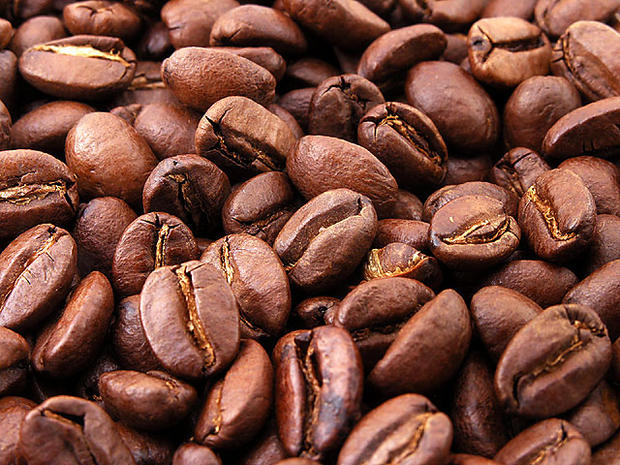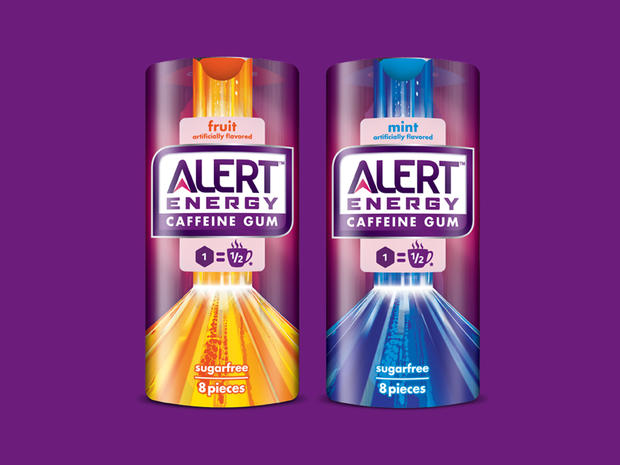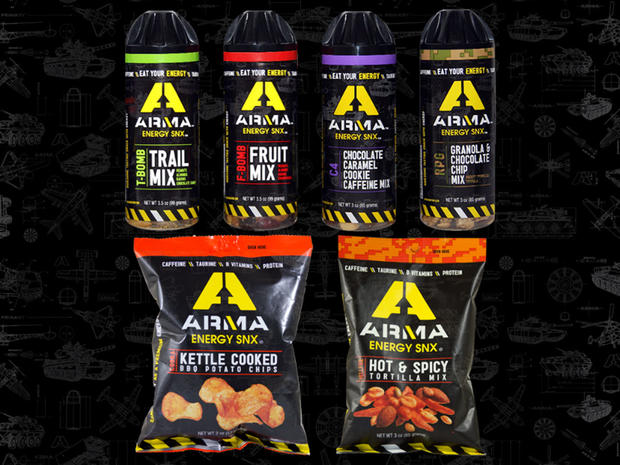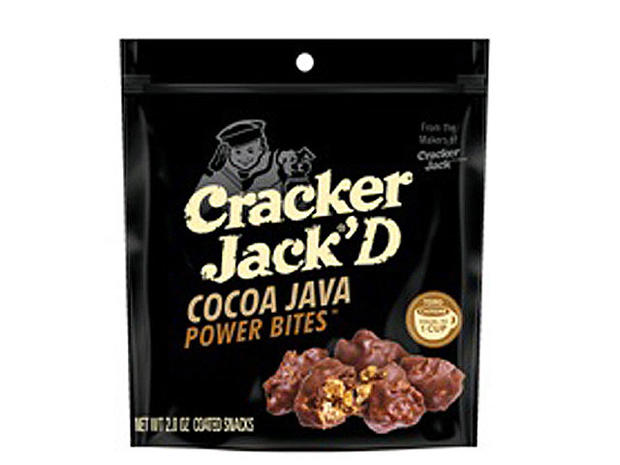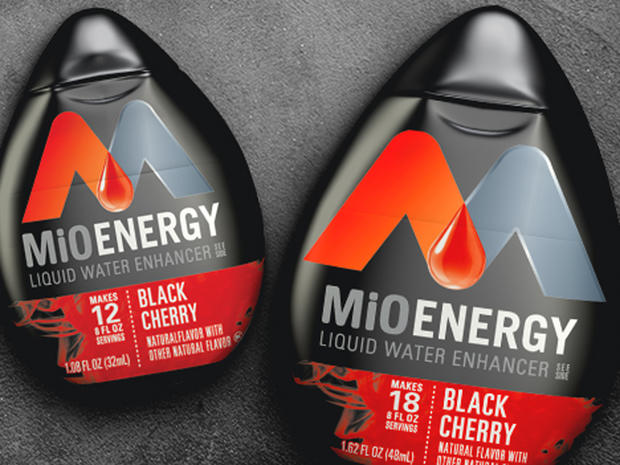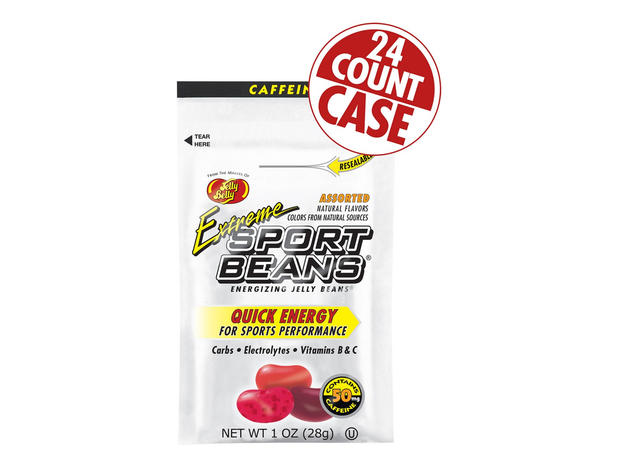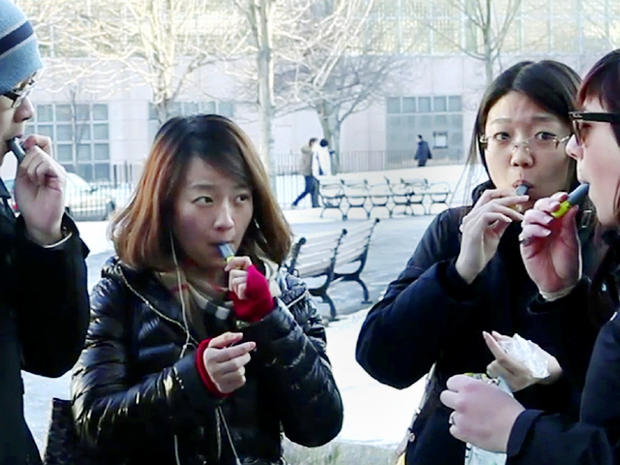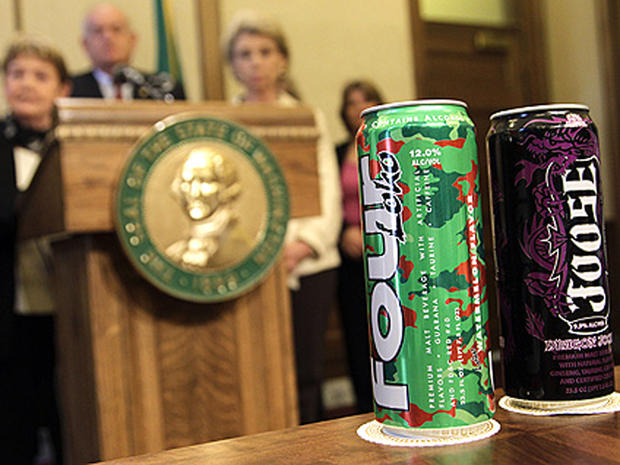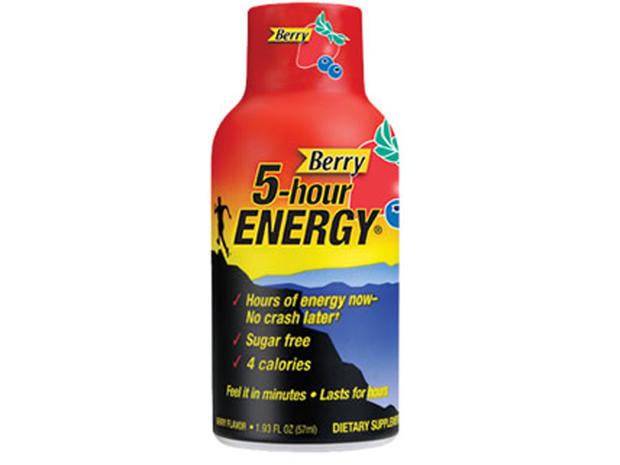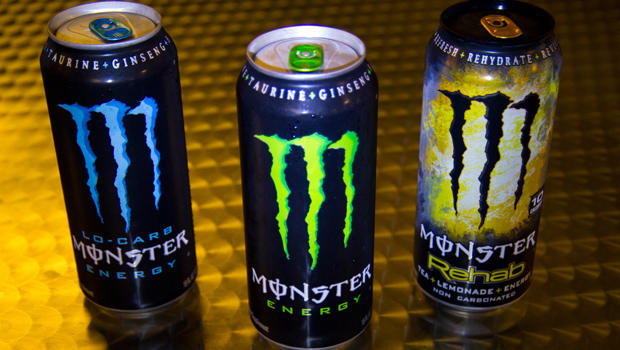Controversial caffeinated products
But, less is clear about the health effects of caffeine added to foods such as potato chips and gum -- especially in children and teens, who health advocates warn may be likely to reach for these snacks.
"It is disturbing," FDA deputy commissioner of foods Michael Taylor told the Associated Press of the recent trend of adding caffeine to foods. "We're concerned about whether they have been adequately evaluated."
Several other caffeinated products have been scrutinized recently over fears children may harm their health if they get their hands on them. Keep clicking to see some caffeinated products that have made recent headlines...
Wrigley's Alert gum
One piece of Wrigley's Alert Energy Caffeine Gum contains the same amount of caffeine as half a cup of coffee, according to the product's label -- about 40 milligrams of caffeine.
The product is marketed to consumers ages 25 and older, but critics argue it's not enough to say a product is marketed towards adults when the caffeine is added to items like candy that are attractive to children.
FDA officials have held meetings with some of the large food companies that have ventured into caffeinated products, including Mars Co., which owns Wrigley, according to the AP.
Arma Energy Snx
A servings of Arma's kettle cooked energy chips contains about 70 milligrams of caffeine, about the same as an espresso shot.
The American Academy of Pediatrics says caffeine has been linked to harmful effects on young people's developing neurological and cardiovascular systems.
Cracker Jack'd
"Unless the FDA begins enforcing its regulations, I fear that we'll see caffeine being added to ever-more improbable drinks and snacks, putting children, unsuspecting pregnant women, and others at risk," CSPI executive director Michael F. Jacobson said in a written statement at that time. "How soon before we have caffeinated burgers, burritos, or breakfast cereals?"
"Cracker Jack'D is a product line specifically developed for adult consumers and will not be marketed to children," a company spokesperson said at the time. "The package design and appearance are wholly different from Cracker Jack to ensure there is no confusion among consumers."
MiO "water enhancers"
MiO Energy comes in 32- and 48-milliliter squirt bottles that dispense half-teaspoon-sized servings intended to flavor water with each serving containing about 60 milligrams of caffeine, about as much as a small cup of coffee.
"We suspect that many children would add several squirts of the colorful liquid to a glass of water," CSPI said in a letter to the FDA and Kraft.
Jelly Belly's "Extreme Sport Beans"
The CSPI said in its letter it worries companies large and small can begin adding caffeine to all kinds of foods and beverages, leading to serious health problems for young children.
AeroShot caffeine inhalers
Breathable Foods' AeroShot caffeine inhalers deliver "airborne energy," according to its makers, by providing a caffeine boost on-the-go when users breathe in a dissolved fine powder from the lipstick-sized canister.
Democratic U.S. Sen. Charles Schumer of New York had pressed the FDA in December 2011 to review AeroShot, saying he feared it would be used as a club drug that allows people to stay up all night drinking.
The FDA reviewed the product, and warned the company to change "misleading" labeling of its product as "inhalable caffeine," because the product is technically a dietary supplement that should be ingested. The agency also chastised the company for advertising it for use when "hitting the books," an activity common in children in adolescents.
In this Jan. 23, 2012 still photo taken from video, students try free samples of AeroShot, an inhalable caffeine packed in a lipstick-sized canister, on the campus of Northeastern University in Boston. Harvard University engineering professor David Edwards, created AeroShot, which went on the market in late January.
Four Loko
Four Loko was an alcoholic energy drink that got the attention of federal investigators because teens and young adults were blacking out after drinking the products. The FDA in 2010 warned the makers of Four Loko -- along with other companies that made similar beverages -- that caffeine is an unsafe food additive for alcoholic beverages and the products' marketing targets young adults who are especially vulnerable to adverse behavioral effects. Four Loko eventually removed caffeine from its beverages.
Alcoholic energy drinks "Four Loko" (left) and "Joose" are shown at a press conference, Nov. 10, 2010, at the Capitol in Olympia, Wash.
5-Hour-Energy
Substance Abuse and Mental Health Services Administration noted a ten-fold increase in energy-drink related emergency room visits from 2005 to 2008. About 52 percent of emergency room visits were from people ages 18 to 25 who had mixed the products with alcohol or other drugs.
5-Hour Energy CEO Manoj Bhargava told CBS News medical correspondent Dr. Jon LaPook at the time his product was safe, and his son in his early 20s uses it everyday.
Monster Energy Drink
Monster denied its products role in the girl's death, saying she had a pre-existing medical condition. Monster added its target market is 18 to 34-year-olds, but that its drinks are nevertheless safe for children.
